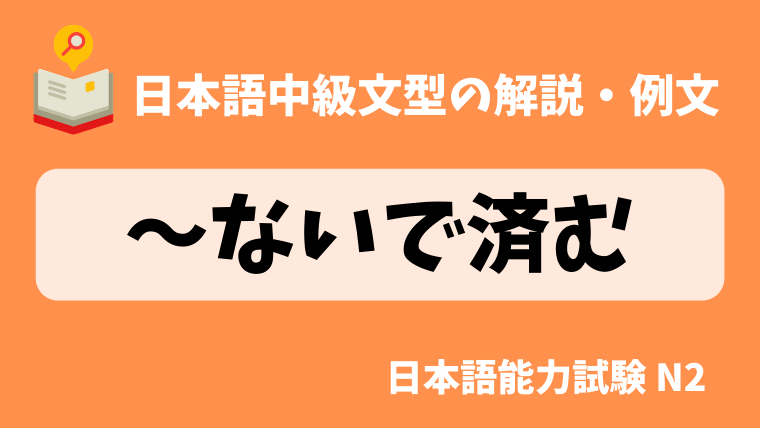(2025/06/30 08:39:30時点 Amazon調べ-詳細)
解説:〜ないで済む / なくて済む / ずに済む
●意味
“〜なくてもいい / 〜なくても問題ではない”
〜しなければならないと思っていたことが、しなくてもよくなったことを表す。
話の手のほっとした気持ちが含まれることが多い。
“It’s not necessary to do ~ / It’s not a problem if you don’t do ~”
This expresses a change from thinking something must be done to realizing that it’s no longer required. It often conveys a sense of relief in the context of the conversation.
●接続
V(ナイ形)+ で済む
V(ナイ形)ない + くて済む
V(ナイ形)ない + ずに済む
●日本語能力試験(JLPT)のレベル
N2
●備考
「済む」は「終わる」、「完了する」、「足りる」、「解決する」といった意味がある。
例文
お店でお皿を割ってしまったが、きちんと謝ったので、お金を払わずに済みました。
I broke a plate at the store, but I was able to avoid paying for it because I apologized properly.
図書館を利用すれば、高い本は買わなくて済みますよ。
If you use the library, you don’t have to buy expensive books.
どこかで、電車の切符をなくしてしまいましたが、事情を説明したらチケットを再購入せずに済みました。
I lost my train ticket somewhere, but I was spared from having to buy another one because I explained the situation.
今年の夏は涼しかったので、エアコンを使わずに済みました。
The summer was so cool this year that I managed without using the air conditioner.
この電車なら、乗り換えをしないで済みますよ。
You can do without transferring on this train.
漫画喫茶が空いていたので、野宿せずに済みました。
The manga cafe was empty, so I avoided sleeping rough.
今日は30分早く起きたので、慌てなくて済みました。
I was relieved to get up 30 minutes early so I didn’t have to rush.



